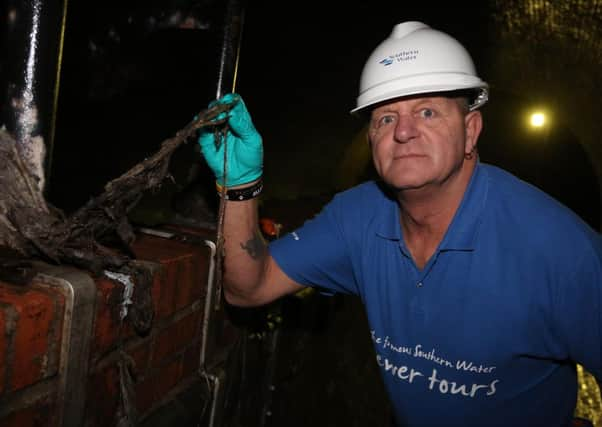‘Don’t be a pain in the drain’ is water firm’s new appeal


In the last year, hundreds of sewer blockages across the area were caused by things which should not be flushed, such as wet wipes and cotton buds.
Three-hundred blockages were in the Worthing area, 125 in Shoreham, and 330 in Littlehampton, and the figures include blockages caused by solidified fat, oil and grease.
Advertisement
Hide AdAdvertisement
Hide AdEach year in the UK, billions of items are flushed down the toilet that should be put in the bin, and thousands of litres of fat, oil and grease are poured down kitchen sinks.
These can lead to blockages in drains and sewers, putting homes at risk of sewer flooding – when wastewater backs up, it can spill out of toilets, sinks or manholes. Southern Water’s wastewater manager, Simon Parker, said: “Along with wet wipes, sanitary products and other non-biodegradable items flushed down toilets, fat is one of the biggest culprits in sewer blockages. These blockages can cause toilets, sinks and baths to overflow inside homes, costing families hundreds of pounds to clear. That’s why we ask customers to only flush the three Ps – pee, poo and paper.
“Everything else should be put in the bin.”
Sewer engineer Stuart Slark is one of a team that goes down into some of the region’s larger sewers to clear build-ups of fat, wipes and other things that people flush away.
He said: “It’s a dirty job but someone’s got to do it. Often, the fat settles on top of the wastewater in the sewer and floats down like a raft.
Advertisement
Hide AdAdvertisement
Hide Ad“These rafts can be up to two feet thick and about six feet long. We have to break them up so the tanker can get them out. It’s pretty grim work.”
Customers can help prevent blockages by not pouring fat and cooking oils, including vegetable and nut oils, down kitchen sinks.
Small amounts of oil can be disposed of by wiping pans with paper towels which can then be thrown in the bin. Oil can also be transferred into containers, once they have cooled, before being thrown away or taken to a local tip. For more advice, visit www.southernwater.co.uk/bagitbinit